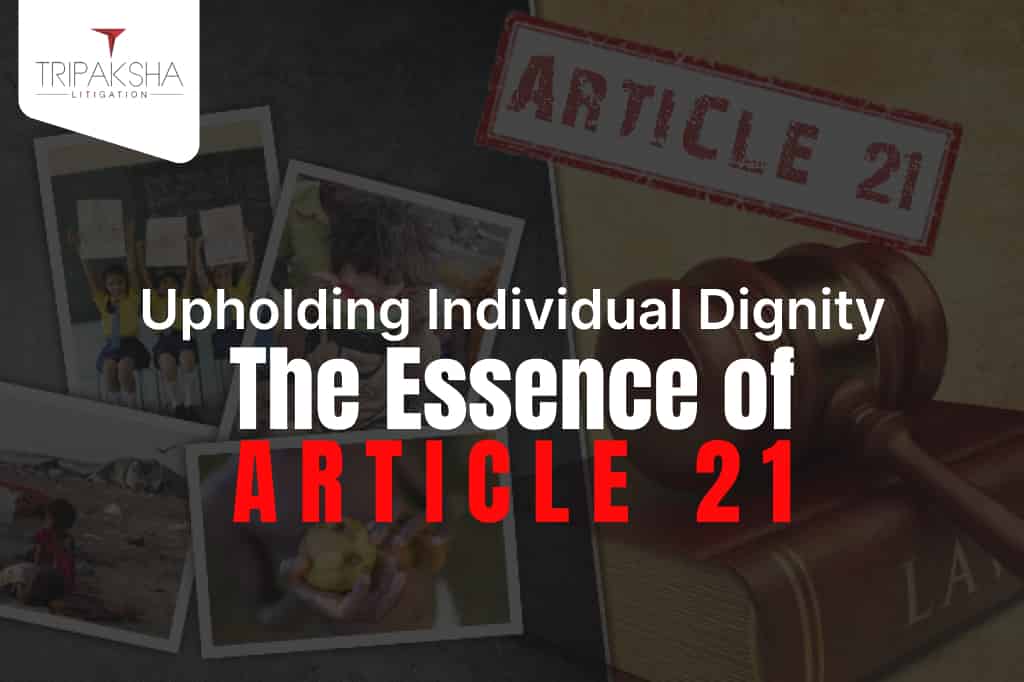You may contact me for consultation or advice by visiting Contact Us and Call us
Upholding Individual Dignity: The Essence of Article 21
In the constitutional framework of India, Article 21 emerges as a fundamental pillar, endowed with unparalleled significance. Widely regarded as the bedrock of justice and humanity, Article 21 encapsulates the essence of individual dignity and serves as a safeguard against oppression and arbitrary state actions.
At its essence, Article 21 stipulates that “No person shall be deprived of his life or personal liberty except according to procedure established by law.” This seemingly simple provision carries profound implications, extending beyond its literal interpretation. It signifies the recognition that every individual possesses inherent rights that necessitate protection from infringement by the state or any other entity.
Over the years, judicial interpretation has expanded and clarified the expansive scope of Article 21. It has evolved into a robust shield, not only safeguarding the right to life and personal liberty but also encompassing various other essential aspects for a life of dignity. Through a series of landmark judgments, the Supreme Court of India has construed Article 21 to include rights such as privacy, dignity, shelter, a clean environment, healthcare, and others crucial for individual development.
A significant contribution of Article 21 lies in its role in curbing state excesses and ensuring procedural fairness. The phrase “procedure established by law” entails more than mere legality; it mandates that any deprivation of life or personal liberty must occur through a just, fair, and reasonable procedure. This requirement acts as a check on arbitrary exercises of state power and underscores the principle of due process.
Furthermore, Article 21 serves as a beacon of hope for marginalized and vulnerable sections of society. It empowers individuals to challenge unjust laws and practices hindering their right to live with dignity. From safeguarding prisoners’ rights to protecting the environment for future generations, Article 21 embodies a commitment to social justice and equality.
The significance of Article 21 transcends the realm of law and governance; it reflects the moral and ethical values of a democratic society. It reaffirms the inherent worth and equality of every individual, regardless of their background or circumstances. In upholding the principles of justice, fairness, and human dignity, Article 21 embodies the aspirations of a nation striving for a more inclusive and compassionate society.
However, the effectiveness of Article 21 relies not only on its constitutional guarantees but also on the commitment of institutions and individuals to uphold its principles. While the judiciary plays a pivotal role in interpreting and enforcing Article 21, it is imperative for all stakeholders, including the government, civil society, and citizens, to ensure its effective implementation.
In conclusion
Article 21 serves as a beacon of hope and a bulwark against tyranny, safeguarding the rights and dignity of every individual. Its principles resonate not only in courtrooms but also in the hearts and minds of people striving for a more just and humane society. As we navigate the complexities of the modern world, let us reaffirm our commitment to the ideals enshrined in Article 21 and strive to build a society where every individual can live with dignity and equality.

